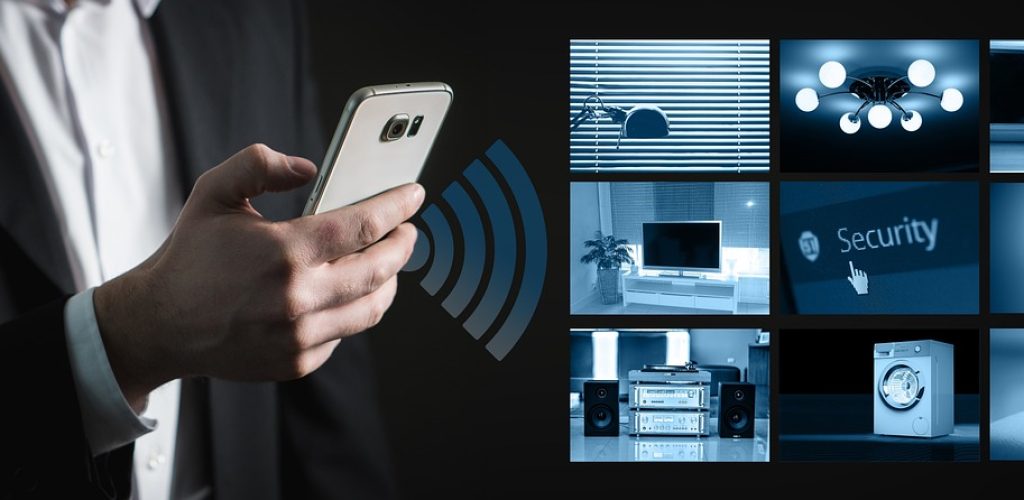Every now and then, you come across news of someone falling victim to a burglary. Before you dismiss this as something that won’t happen to you: it just happened to one of our friends last week. You can check the video from the surveillance camera here.
How might you stop this from happening to you, you wonder. Fret not—this article gives you a practical, executable, foolproof strategy for securing your property.
First, the Hygiene: Avoiding Becoming a Target and Mitigating Your Losses
- The best way to paint a target on your back is to show off your wealth. In a place like Mauritius, where glaring inequality is an issue, flashy displays of your lifestyle will almost certainly attract burglars. So first and foremost: Do not strut your stuff. Keep a low profile, even if you’ve just bought that new luxury watch or fancy car. It’s not just about safety—it’s common sense.
- Do not keep high-value items like cash or gold at home. For example, we don’t keep expensive jewellery or large amounts of cash. We mainly carry our laptops and mobile phones when we travel, so we don’t have much to lose when we leave. Large items, like appliances, are difficult to steal, so we don’t worry too much about those. A Spartan lifestyle may not be for everyone, but it’s worth considering: Try to keep your wealth secure in financial instruments rather than having it lying around the house.
- If you have to keep expensive items at home, get home insurance. This is a good way to secure your valuables. Make sure to declare all your valuable items to your insurance provider, and they’ll give you a quote. This covers your possessions against burglary, as well as damage from things like flooding or fire.
Once These Basic Steps Are Done, You're Ready to Take Further Measures to Fortify Your Home
To be really secure, you must implement as many of the following measures as possible. The more, the better.
1) CCTV: An Easy One to Guess, but Details Matter
CCTV systems are the most commonly used security devices, and for good reason. However, the devil is in the detail. The type of CCTV you choose will ultimately determine how well you can secure your property.
- Use multiple cameras. While 360-degree cameras cover all angles, a truly safe approach is to use multiple cameras. Modern 360-degree cameras come with patrol mode (they rotate around), but there are often intervals during which parts of your property are left uncovered. Unless you have connected motion sensors, your camera won’t capture those uncovered areas. Multiple cameras make sure that all spaces are under constant surveillance.
- Technical glitches. A camera fault can leave your security exposed for days until you get it fixed. Having multiple cameras addresses this issue. If one fails, others will still be working.
- Camera to watch a camera. Sometimes burglars target cameras first to remove evidence of their presence. Multiple cameras make it nearly impossible for them to escape without being caught on film.
- Camera direction. Your goal is to cover all areas where someone might try to enter your premises. Whether you opt for 360-degree cameras or pointed ones depends on the area you’re covering. Pointed cameras are generally cheaper, but if you’re only monitoring a small area, like a gate, they can be sufficient.
- Outdoor wired vs. battery-operated CCTVs. Battery-operated CCTVs offer flexibility in terms of placement, but they come with the risk of running out of battery. Wired cameras, on the other hand, don’t have that risk but can be harder to install. A combination of both might be the best solution.
- Solar-powered CCTVs. Solar-powered cameras are fantastic because they run off solar panels, making them self-sustaining and perfect for critical areas. These panels work even on cloudy days, and since they’re wireless, they’re ideal for areas where wiring would be difficult. The only downside is the higher initial cost, but pairing them with wired cameras will give you the best of both worlds.
- SIM/WiFi cameras. In terms of connectivity, your CCTV system needs to alert you when something happens. Wi-Fi-enabled cameras are the easiest option, but they can fail during power outages or if your router goes down. A backup generator is one solution, but a SIM-enabled CCTV system that works on mobile networks like 5G can be more reliable.
- Motion detection. A CCTV camera without motion alerts is almost useless—it’ll just record hours of nothing. Newer CCTV models come with smart motion detection that can differentiate between humans, objects like cars, and even pets. This means you won’t get unnecessary alerts when a bird flies past or your dog runs around the garden.
- Internal storage / Cloud storage. Aside from motion alerts, you’ll also want your CCTV system to store footage for later use. Cloud storage is great because even if the CCTV gets damaged, your footage is safe. We pay a small monthly fee for cloud storage—about $6—and it’s well worth the peace of mind.
- Indoor vs. outdoor cameras. While outdoor cameras are essential, don’t forget about indoor ones. A burglar might disable the external cameras first, but an indoor camera can trigger an alarm the moment they tamper with the outside ones. These can provide an extra layer of security.
- Smart app integration. Some CCTVs come with an app that lets you monitor your property from anywhere. You’ll get instant notifications on your phone if there’s motion detected, and you can even talk to the intruder through the camera’s built-in mic or sound an alarm. These apps can be integrated with other smart devices, like lights and door locks, creating a connected security system.
In conclusion:
- Use multiple cameras to cover all areas.
- Pair solar-powered CCTVs with wired ones.
- Go for cloud-enabled and smart app-enabled systems.
- Ensure your cameras can detect motion and distinguish between people and pets.
- Have SIM-enabled CCTVs in case of Wi-Fi or power failures.
- Install indoor cameras as an additional layer of security.
2) Infrared Sensors: The Silent Alarms
Next on the list are infrared sensors—they’re stealthy but effective. These sensors work by sending an infrared beam across an area (usually about 15 meters). If a person walks through the beam, the heat emitted by their body will trigger an alarm. They’re ideal for places like French windows or entry points.
The key advantage of infrared sensors is that they’re harder for an intruder to notice, and they can still trigger an alert even if the CCTV system is bypassed.
3) Standalone Motion Sensors: The Hidden Helpers
Standalone motion sensors are small devices that can detect movement and trigger other security systems. Their small size allows them to be hidden discreetly. For example, a motion sensor behind a flower pot could activate a nearby CCTV camera or set off an alarm when it detects movement. These sensors can even turn on lights or appliances to create the illusion that someone’s home.
4) Door Disconnect Alarms: Simple but Effective
These devices are fantastic additions to your security setup. They consist of two parts: a magnetic emitter and a receiver. When the door is closed, the two pieces are in contact. If the door is opened, the connection is broken, and the alarm goes off. These alarms are nearly impossible to disable without triggering a loud sound, making them a great option for doors.
5) Smart Locks: Upgrading Your Door Security
Old-fashioned locks can be bypassed with a little know-how. Smart locks, however, are far harder to tamper with. These allow you to use biometric security features like fingerprint or facial recognition, or even generate temporary codes for guests. Some smart locks will automatically lock when you leave the house or alert you if a door is left unlocked. The only drawback is remembering to replace the batteries, though most smart locks come with emergency charging options in case you forget.
6) Warning Signs: A Good Deterrent
An often-overlooked aspect of security is deterrence. The mere presence of a visible security system can dissuade burglars from even attempting to break in. A large warning sign (e.g., “This property is under 24/7 surveillance”) can make a huge difference. Just make sure it’s clearly visible from the road so that it’s the first thing a potential intruder sees.
7) Love Thy Neighbors: The Power of a Neighborhood Watch
No security system works as well as a strong, connected community. If you have neighbors who are willing to keep an eye on your property when you’re away, that can be your best line of defense. If an alarm goes off, neighbors can help by checking in on your place or calling the police. Strength in numbers is key—if everyone looks out for each other, everyone is safer.
8) Surprise Bonus Tip: The Best Security System—Dogs!
And now, for the surprise tip: Dogs. Our adopted Indian Pariah/Mauritian dog is both adorable and vicious when it comes to guarding the house. She hears and smells anyone who walks past our property and has a bark loud enough to scare off any intruder. She works 24/7, never needs charging, and never has technical glitches. Just be sure you’re ready to provide lots of love and care for your dog. Adopt, don’t shop, and consider getting a professional dog trainer if you need to.
Conclusion: Stay Safe, Stay Secure
When it comes to home security in Mauritius, the key is to implement a combination of smart solutions. From simple steps to high-tech gadgets, there are plenty of ways to secure your property. The more measures you take, the less likely you are to become a target.
Stay safe, stay secure, and feel free to reach out to me for a free consultation on setting up your home security. I’m happy to help!









Recent Comments